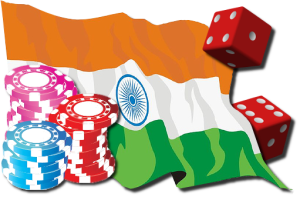 The Supreme Courts of India, yesterday decided to keep and uphold their ban on online gambling. They can continue to prohibit the rights of individual states to prohibit online ‘lotteries’ that are based in other countries or states, from serving their residents.
The Supreme Courts of India, yesterday decided to keep and uphold their ban on online gambling. They can continue to prohibit the rights of individual states to prohibit online ‘lotteries’ that are based in other countries or states, from serving their residents.
The precedent was set when the Court sided with the southwestern state of Kerala, who banned all online gaming in January 2005. In April of that same year, the state government decided to amend its ban, and allow only state-run lotteries to sell paper tickets, all the while maintaining the ban on all other online lotteries.
Several states in the nation, such as Sikkim, Meghalaya and Nagaland, along with the All Kerala Online Lottery Dealers Association challenged the Kerala government’s online ban. The Sikkim government, which has a very tolerant philosophy on gambling compared to other Indian states, argued that online play by Kerala residents was a major source of its lottery revenue and that they would countinue to protest the band until it was lifted.
But the Indian courts would hear none of it, and ruled that the Kerala ban was in the overall public interest and morality. They decided that the appellants failed to demonstrate any “compelling grounds” for overturning the lower court decisions, and so they upheld the original decision quite adamently.
The Court noted that the main problem is that tickets generated from online lottery terminals in Kerala doesn’t have the imprint of the Kerala government on them. The Court then went on to say that the state of Sikkim “does not have any control” over its lottery terminals which are located outside its own borders. And so customers in Kerala have no assurance that the ticket they purchased is legitimate and can be redeemed.
The Court added that Kerala’s out-dated Lotteries Act 1998 outlined and determined that lottery drawings to be held once a week in a physical location, whereas online gaming offers “several draws within minutes.” The Court stated that this was enacted to maintain a moral boundary and social protection, believing that a once-weekly limit on betting was meant to impose “a week’s cooling off period” put on any “fortune seeker,” who would possibly and otherwise “stay glued” and keep betting “till all his savings are exhausted.”
The Court has quite an obviously negative tone towards online gambling in general, saying it was “considered as a pernicious vice by all civilized societies from time immemorial.” However, the it seems the Court focused the majority of its criticism on “evil” lotteries, declaring that most forms of gambling both in person and online were “comparatively innocuous” compared to the “widespread pestilence” that gaming and lotteries could bring.
The Court made its bias clear and reiterated its view, claiming that most forms of gambling are “confined to a few persons and places” whereas an online game “infests the whole community; it enters every dwelling; it reaches every class; it preys upon the hard earnings of the poor; it plunders the ignorant and the simple.”
It seems online gaming, betting and gambling has a long way to go in India – and this ruling could have set the country back decades in comparison to it’s other Eastern and Asian neighbours.

